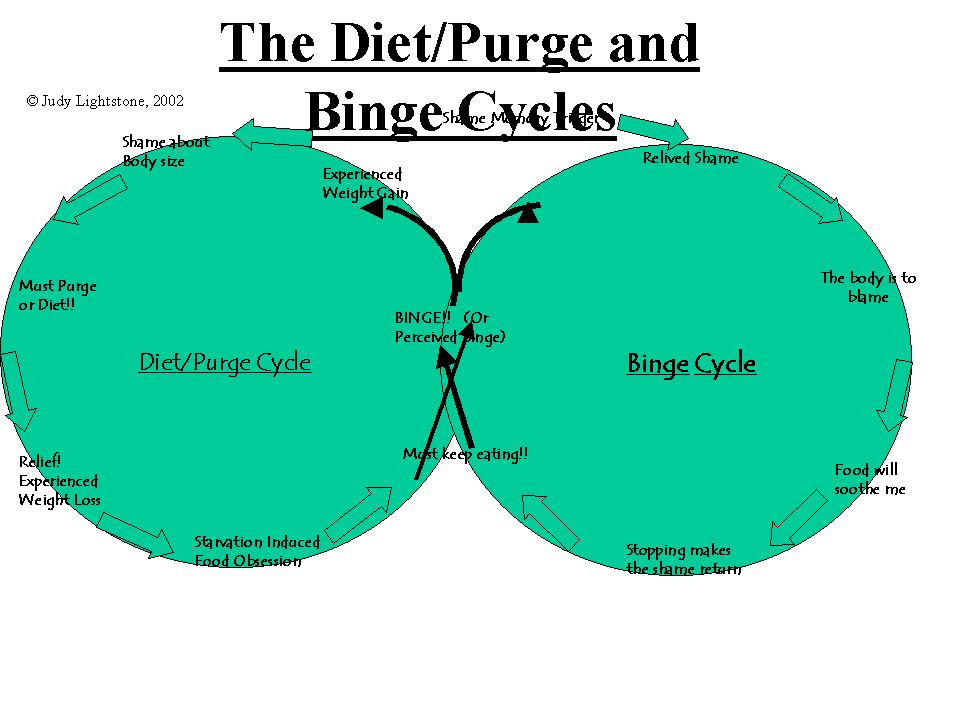Compulsive Overeating
Compulsive overeating, also sometimes called food addiction, is characterized by an obsessive/compulsive relationship to food. Professionals address this with either a behavior-modification model or a food-addiction model. An individual suffering from compulsive overeating disorder engages in frequent episodes of uncontrolled eating, or binge eating, during which they may feel frenzied or out of control, often consuming food past the point of being comfortably full. Bingeing in this way is generally followed by feelings of guilt and depression. Unlike individuals with bulimia, compulsive overeaters do not attempt to compensate for their bingeing with purging behaviors such as fasting, laxative use or vomiting. Compulsive overeaters will typically eat when they are not hungry. Their obsession is demonstrated in that they spend excessive amounts of time and thought devoted to food, and secretly plan or fantasize about eating alone. Compulsive overeating usually leads to weight gain and obesity, but not everyone who is obese is also a compulsive overeater. While compulsive overeaters tend to be overweight or obese, persons of normal or average weight can also be affected








No comments:
Post a Comment